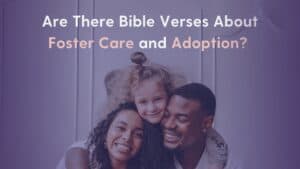“Go ahead, kick me out!” bellowed my son in that serious Russian voice of his as he jumped up from the kitchen table. “Why did you even bring me here? I don’t belong here!”
My family of six was having a noisy dinner at the time. Everyone was talking, and I had apparently missed something Daniel was trying to say to me. He took this as a sign of rejection – he took most everything as a sign of rejection. I knew what he was thinking: It’s better to leave first, before they get rid of me. Because it’s just a matter of time before they abandon me, just like Mom and Dad did.
It had been seven months since my husband, Jeff, and I had adopted this boy and his 11-year-old sister, Masha, from a Russian orphanage. In our hearts and minds, they were officially Holmquists, joining our teenage biological children, Anna and Ben. But Daniel didn’t believe he could actually be part of our family. Assuming this sensitive, hurt boy would immediately trust us was expecting too much.
Our new son had communicated his distrust for months in the strange ways that only a traumatized, anxiety-ridden English-language learner could. That January evening in 2005, he expressed his fear of being abandoned by letting the front door bang shut behind him and running into the darkness.
“Daniel! Come back!” I called out to him. “I just didn’t hear you. You do belong here!”
I ran after him – down our snow-covered rural Wisconsin driveway, down the road lined with pine trees – breathing in air that pierced my lungs like icicles.
“It’s too cold, Daniel. You can’t run away in your socks!” I shouted in typical mom fashion, as if common sense would make a difference.
I barely got the words out as I quickened my stride. I was forty-two and not an athlete, yet here I was chasing down a preteen who could run circles around me. I came close enough to snag my son’s sweater, but he simply took it off, leaving me standing there incredulous, the sweater hanging limp from my fingers, my breath visible in the night air.
There was just enough moonlight for me to see Daniel’s bare-chested, thin body as he stumbled on, arms flailing. He was crying and moaning with a depth of sorrow I couldn’t comprehend. The cold air on his chest must have impeded him, because with a final burst of speed, I was able to grab my son and wrestle him into the snowy ditch. Slowly I led him back to the house – he’d given up the fight. I was shaking with exhaustion as I looked to the clear, cold sky.
I’m too old for this, Lord! I’m just way too old for this.
My lungs ached from the freezing air. My body hurt and my soul was frightened. What if Daniel would never trust me?
This wasn’t a scene I’d expected as my husband and I began preparing for adoption in 2002. What had I expected? Nothing, I thought. I wasn’t looking for new children to fulfill my dreams. After all, I’d already given birth to Anna and Ben, and Jeff and I had experienced many storybook – and stressful – parenting moments.
In hindsight, I realize that I did have expectations. I expected our new children to trust us. For Daniel, who had been deeply hurt by every adult he had ever loved, developing that confidence in us took more than a year. I’d also assumed I’d have another daughter who liked to talk a lot and share all of her feelings with her mother, but I was wrong. I expected all of my children to become instant best buddies since they were so close in age. I didn’t consider how major personality differences, emotional maturity gaps, and living with a traumatized sibling would affect these relationships. I expected our love and knowledge as parents to heal every wound our new children might have. I wish I could tell you that this expectation was fulfilled, but it wasn’t.
I’m not the only adoptive parent who has been taken by surprise. I’m sure the couple who adopted a neglected, abused two year-old boy hadn’t expected his first words to his new father to be “F – you!” And the parents who had provided the foster-care system with a long list of criteria for a child didn’t expect God to say, “Do you trust Me to choose the child?”
As the mother of biological children who are now in their 20s, I can tell you that surprises and unmet expectations are the norm for all the children we raise. As you approach adoption, you’ll need to examine your expectations. And you’ll need to expect the unexpected.
















